Picking between a good pair of headphones or a set of speakers is a challenge, regardless of your use case. Each option offers a distinct experience, so it all depends on what, how, and where you're listening. Let's see what each device has to offer to help you decide.
Another prominent feature of headphones is that you're more likely to notice their unique frequency response curve. This is the signature sound that a model of headphones is known for. Some headphones emphasize the bass, while others focus on vocal clarity. Even audiophile-grade headphones have different frequency response curves that cater to certain preferences or music genres.
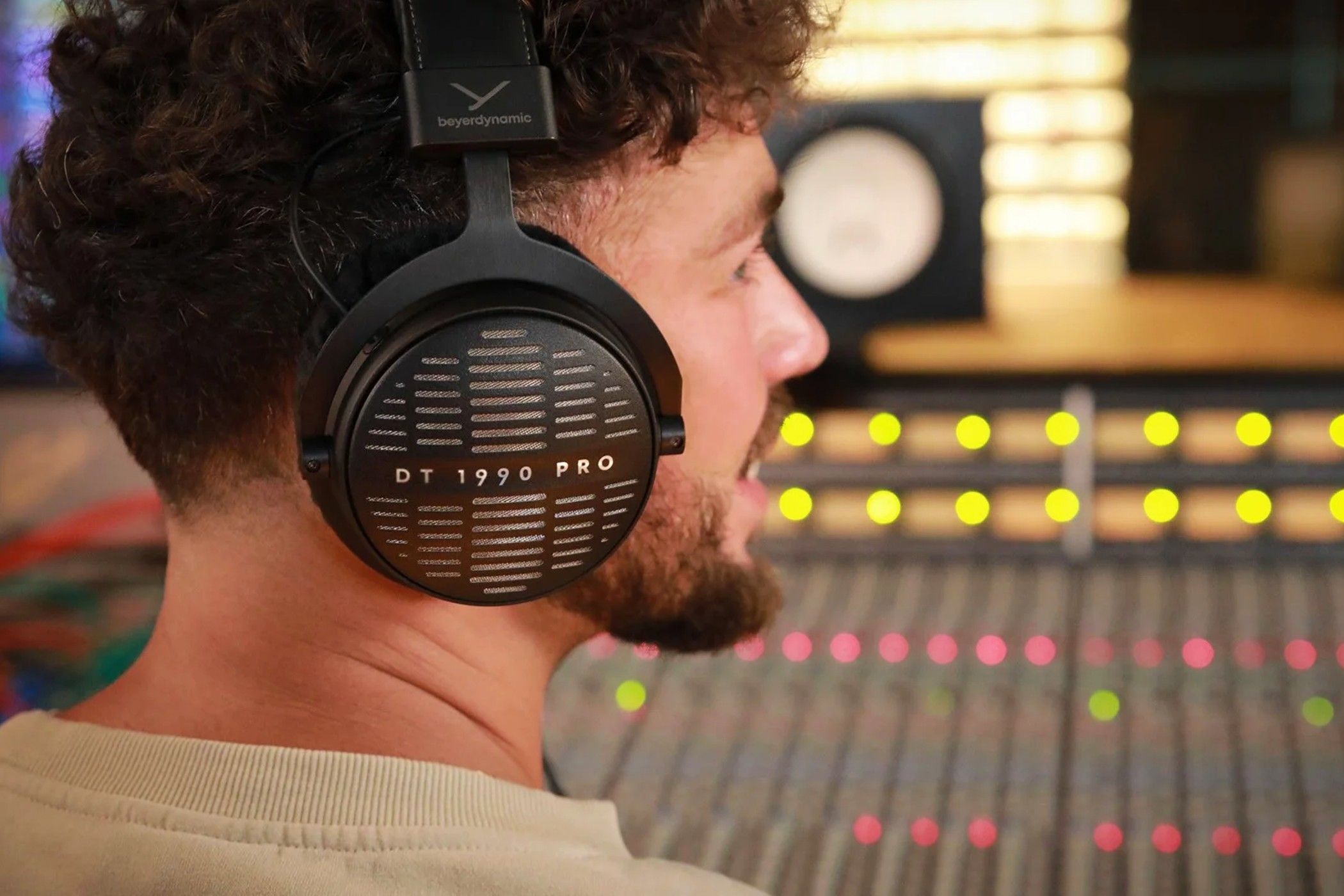
Although speakers can also have colored (adjusted) frequency response curves, you can't always hear all the details since they sit further away from your ears. This doesn't mean that speakers are inferior in any way; it's just that the listening experience is completely different due to the way the sound gets to us. We even use different terminology to label them. While we often hear of "audiophile headphones," good speakers are simply referred to as "Hi-Fi", though of course there are audiophile-grade speakers too.
Arguably, the primary advantage that speakers provide is their wide-open sound stage. You can think of a sound stage as a hypothetical room that describes the spatial arrangement of sounds. Generally speaking, speakers provide a wide-open sound stage that makes the audio feel "open," especially when you turn them up, allowing sound to occupy the whole room. It feels natural to hear audio this way. Open-back headphones can mimic this effect to a great extent, but with speakers, you get the real deal.
Closed-back headphones with tight-fitting ear pads will leak minimal sound, so that's the only option if you want to listen to music at night. Add Active Noise Cancellation (ANC) on top of that if you want to block all external noise or use headphones in public.

Conversely, if you want to listen to music or watch movies with others, a single pair of headphones is a no-go. Speakers are extremely versatile; you can use them on your own or share the experience at gatherings. Plus, they can fill the air with relaxing ambient music.
As for gaming, there are strong arguments for either option. Speakers combined with a subwoofer that can shake your whole table make for a phenomenal experience, especially in adventure and racing games.
Conversely, headphones tend to be more immersive and are the best way to hear enemy footsteps in online shooters, especially if they have surround sound. A good surround sound system allows for a similar experience, but it costs more and takes up a lot of space.
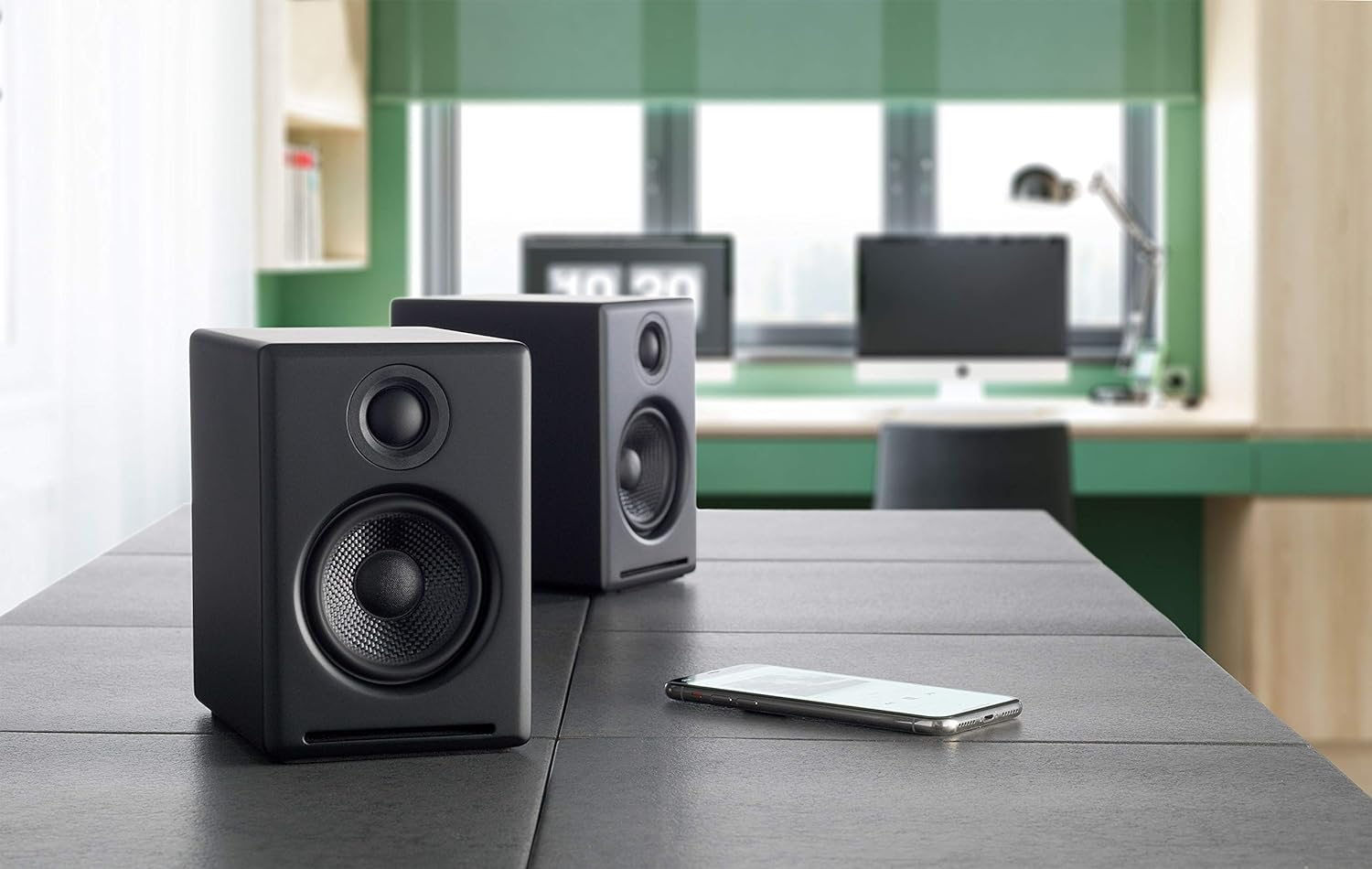
If you're always on the move, headphones are awesome. They give you a quick way to upgrade your laptop or smartphone's built-in speakers. Wireless earbuds are especially convenient to use and easy to carry. They're perfect for the gym, flights, commutes, or even work.
However, wireless headphones also have to be charged, meaning you're left without headphones until you charge them, though some models can be used while charging. Wired headphones aren't that convenient, either, as you have to deal with a wire hanging from your head. Let's be honest: we've all forgotten we were wearing headphones and yanked them out of the PC at least once.
In my opinion, nothing can beat the convenience of speakers. Once set up, they're always right there, plugged in, waiting for you to use them. Playing music is as simple as turning on your playback device and selecting a song. The only downside is that you can't move speakers around easily, so setting them up anywhere other than your room is a nightmare. Of course, Bluetooth speakers do exist and need to be charged just like wireless headphones, but I consider them a completely separate category from traditional speakers due to their unique nature.
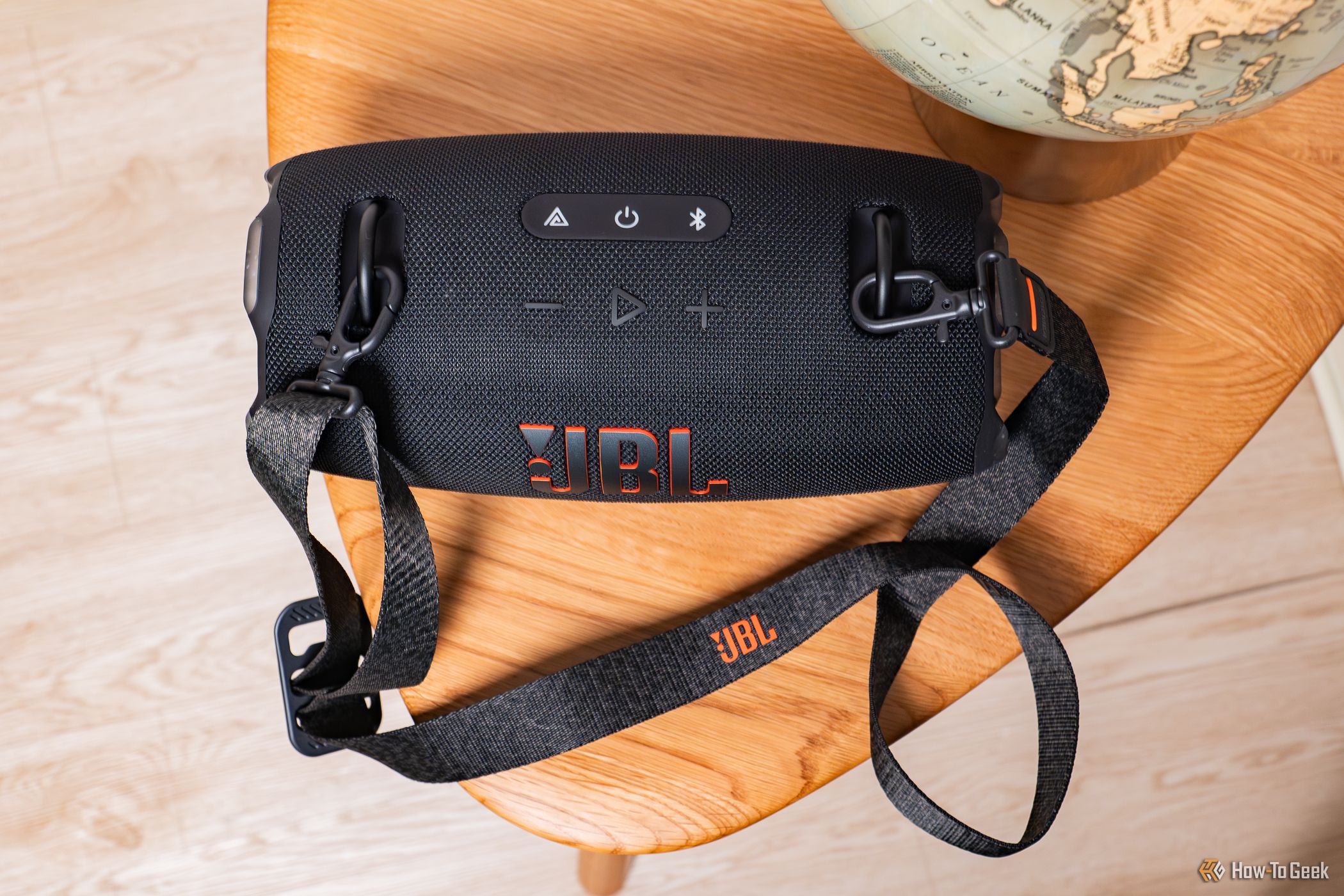
In comparison, you can't really get tired or comfortable with speakers. They're a delight to use in the summer. This isn't to say that you can't get listener fatigue, though, as it can happen with either device.
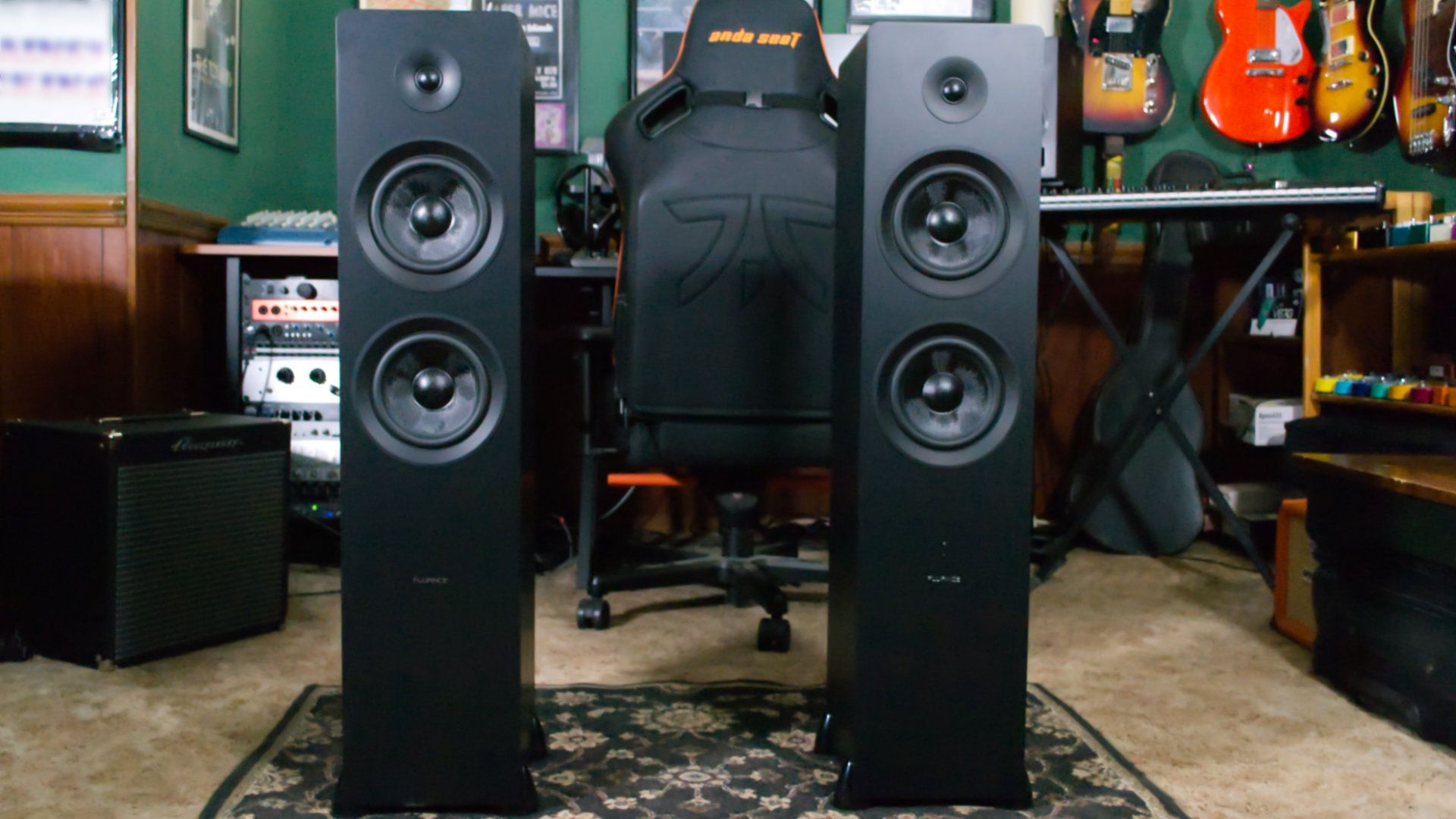
Moreover, both devices can damage your hearing if you listen to high volumes for too long. That said, headphones sit much closer to your ears, so if the content you're listening to has loud spikes, it can do more harm to your hearing.
Speakers can get "fried" more easily if you push the volume to the point that it causes physical damage to the delicate components. However, most speakers won't allow you to push them far beyond their limit without an external amplifier, so it's not something that happens often. Plus, it can technically happen with headphones, too, if your eardrums don't explode first.
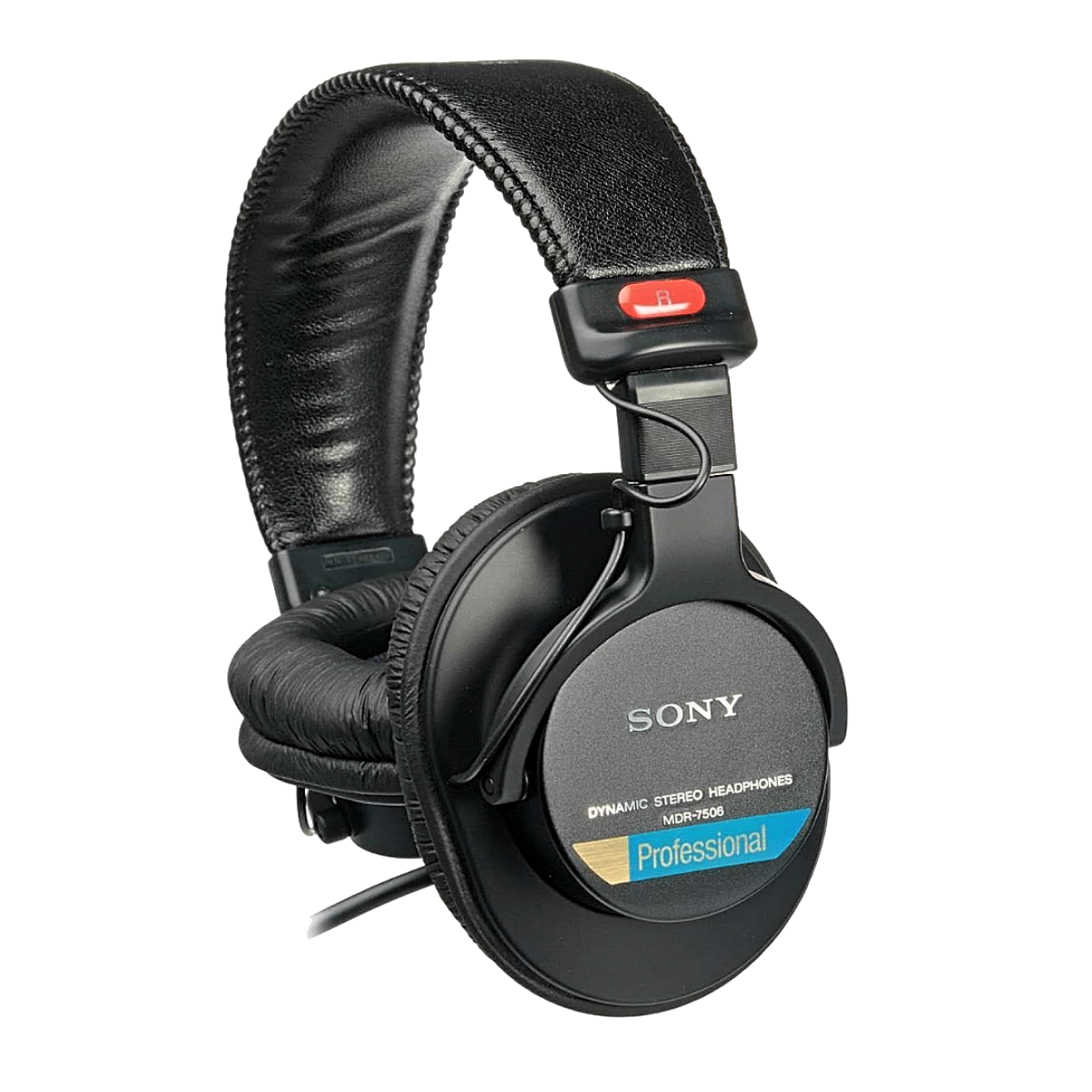
The Sony MDR7506 headphones might be a studio staple, but they're affordable for anyone, bringing reliable, accurate monitoring at a reasonable price.
If you're on a tight budget at the moment, it's better to get a decent pair of headphones or speakers instead of buying two bad ones. If sound quality is of the utmost importance, headphones typically have a slight edge, but speakers can also sound great and are versatile and objectively more comfortable.
NOTE:
- Headphones offer an immersive listening experience with detailed sound and unique frequency responses.
- Speakers provide a wide-open soundstage and can be used with other people around.
- Headphones are more portable, but speakers are generally more convenient and durable in the long run.
The Listening Experience Is Subjective
No two humans are the same, and when it comes to sound, our preferences determine which type of listening experience we enjoy more. Headphones sit close to your ears, which usually means you can hear more detail and provide a more immersive experience. You'll focus more on the sound and potentially enjoy and appreciate the little details.Another prominent feature of headphones is that you're more likely to notice their unique frequency response curve. This is the signature sound that a model of headphones is known for. Some headphones emphasize the bass, while others focus on vocal clarity. Even audiophile-grade headphones have different frequency response curves that cater to certain preferences or music genres.

Although speakers can also have colored (adjusted) frequency response curves, you can't always hear all the details since they sit further away from your ears. This doesn't mean that speakers are inferior in any way; it's just that the listening experience is completely different due to the way the sound gets to us. We even use different terminology to label them. While we often hear of "audiophile headphones," good speakers are simply referred to as "Hi-Fi", though of course there are audiophile-grade speakers too.
Arguably, the primary advantage that speakers provide is their wide-open sound stage. You can think of a sound stage as a hypothetical room that describes the spatial arrangement of sounds. Generally speaking, speakers provide a wide-open sound stage that makes the audio feel "open," especially when you turn them up, allowing sound to occupy the whole room. It feels natural to hear audio this way. Open-back headphones can mimic this effect to a great extent, but with speakers, you get the real deal.
Your Use Case Matters
What and how you plan to use the device arguably matters the most. Some people can't even consider speakers, as they'd disturb other family members, roommates, or neighbors. Fortunately, headphones provide a great way to enjoy sound in private.Closed-back headphones with tight-fitting ear pads will leak minimal sound, so that's the only option if you want to listen to music at night. Add Active Noise Cancellation (ANC) on top of that if you want to block all external noise or use headphones in public.

Conversely, if you want to listen to music or watch movies with others, a single pair of headphones is a no-go. Speakers are extremely versatile; you can use them on your own or share the experience at gatherings. Plus, they can fill the air with relaxing ambient music.
As for gaming, there are strong arguments for either option. Speakers combined with a subwoofer that can shake your whole table make for a phenomenal experience, especially in adventure and racing games.
Conversely, headphones tend to be more immersive and are the best way to hear enemy footsteps in online shooters, especially if they have surround sound. A good surround sound system allows for a similar experience, but it costs more and takes up a lot of space.
Headphones Are More Portable but Not Always More Convenient

If you're always on the move, headphones are awesome. They give you a quick way to upgrade your laptop or smartphone's built-in speakers. Wireless earbuds are especially convenient to use and easy to carry. They're perfect for the gym, flights, commutes, or even work.
However, wireless headphones also have to be charged, meaning you're left without headphones until you charge them, though some models can be used while charging. Wired headphones aren't that convenient, either, as you have to deal with a wire hanging from your head. Let's be honest: we've all forgotten we were wearing headphones and yanked them out of the PC at least once.
In my opinion, nothing can beat the convenience of speakers. Once set up, they're always right there, plugged in, waiting for you to use them. Playing music is as simple as turning on your playback device and selecting a song. The only downside is that you can't move speakers around easily, so setting them up anywhere other than your room is a nightmare. Of course, Bluetooth speakers do exist and need to be charged just like wireless headphones, but I consider them a completely separate category from traditional speakers due to their unique nature.

Nothing Is More Comfortable Than Wearing Nothing
Regardless of how comfortable a pair of headphones is, at the end of the day, you're wearing something on or in your ears. They'll inevitably cause some discomfort after a prolonged listening session.In comparison, you can't really get tired or comfortable with speakers. They're a delight to use in the summer. This isn't to say that you can't get listener fatigue, though, as it can happen with either device.

Moreover, both devices can damage your hearing if you listen to high volumes for too long. That said, headphones sit much closer to your ears, so if the content you're listening to has loud spikes, it can do more harm to your hearing.
Speakers Are Inherently More Durable
Speakers are more durable than headphones. Something that you basically never touch doesn't wear out easily. Headphones are very easy to drop, and even the most durable pair in existence will break if you drop them one too many times. Also, headphone cables can get frayed or damaged, and the headbands and ear pads wear out over time.Speakers can get "fried" more easily if you push the volume to the point that it causes physical damage to the delicate components. However, most speakers won't allow you to push them far beyond their limit without an external amplifier, so it's not something that happens often. Plus, it can technically happen with headphones, too, if your eardrums don't explode first.
There’s Always Room for Both
The good news is that you don't have to choose between speakers and headphones. Simply get both! I use my speaker for everyday music listening, YouTube, and gaming during the day, and I turn to my headphones in the evening or to block out street noise. Simply pick between the two based on your mood and current scenario.
The Sony MDR7506 headphones might be a studio staple, but they're affordable for anyone, bringing reliable, accurate monitoring at a reasonable price.
If you're on a tight budget at the moment, it's better to get a decent pair of headphones or speakers instead of buying two bad ones. If sound quality is of the utmost importance, headphones typically have a slight edge, but speakers can also sound great and are versatile and objectively more comfortable.
